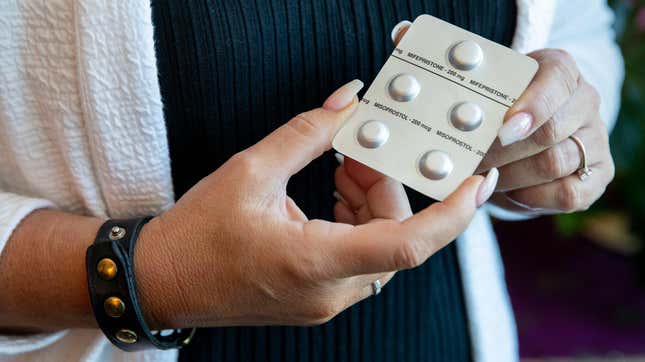Requests for Abortion Pills Have Skyrocketed Since Roe Was Overturned
Aid Access has seen increased demand across 30 states following the overturning of Roe v. Wade—even if the state isn't likely to ban abortion.
AbortionPolitics

Requests for abortion pills have skyrocketed in 30 states, particularly in the South, since the Supreme Court overturned Roe v. Wade, according to research from Aid Access released Tuesday. The nonprofit organization—which will prescribe abortion pills under “advance provision” aka before a patient becomes pregnant—saw a steady uptick after the Dobbs decision leaked in May, followed by a huge rise after the decision was officially announced at the end of June.
Before we lost Roe as a legal threshold, the average weekly request for medication abortion was about 83 requests across 30 states. After the Supreme Court officially rescinded federally protected abortion rights, Aid Access requests more than doubled, to 213 requests each week.
“Just because you ban abortion does not change the need for abortion. It doesn’t change people’s experiences or their needs,” lead study author Dr. Abigail R. A. Aiken, of the University of Texas, told Jezebel. “And so people do they find other ways.”
-

-

-

-

-

-

-

-

-

-

-

-

-

-

-

-

-

-

-

-

-

-

-

-

-

-

-

-

-

-

-

-

-

-

-

-

-

-

-

-








































